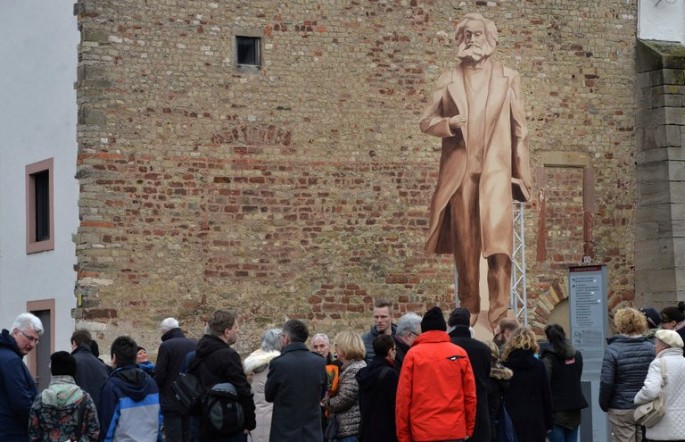After rigorous deliberation, the city council of Trier, Germany decided to accept a controversial 6.3-meter bronze statue of Karl Marx, in line for the commemoration of his 200th birthday in his hometown. However, it seems that not everyone in Trier is happy with the city council's decision.
Voting 42-11, the city council of Trier resolved a months-long debate initiated by the residents on whether China's gift to the city would be accepted. The Marx statue is a humongous resemblance of the economist and Communism's founding father, and is given to the city where he spent the first 17 years of his life.
The bronze Marx statue is designed by Chinese sculptor Wu Weishan and is set to be erected on a spot next to Trier's city museum on Simeonstiftplatz. As a test run, the city installed a same-size wooden representation of the statue on the planned spot, DW reported.
Some of Trier's residents expressed their dismay over the decision, with one saying that a statue of the man responsible for Communism is not an honor befitting even for his hometown. However, the city council stood by its decision, saying that the Marx statue doesn't glorify the Communist ideology.
Through Marx, Communism has influenced various regimes throughout the 20th century, going head-on with capitalism especially at the height of the Cold War between U.S. and the former Soviet Union. Yet, despite falling out of the mainstream, Communism continues to influence present-day administrations.
The Communist Party of China, for instance, is perhaps the modern world's most powerful purveyor of Communist thought, albeit under the official ideology of "socialism with Chinese characteristics." Chinese President Xi Jinping expressed his desire to develop the ideology alongside Chinese economic progress.
Calling for a "scientific development" of Marxist thought, Xi stressed that Communist ideology is more a means than an end to reach the truth in both the social sciences and philosophy, as he continues to aspire for the development of an ideological upgrade, which he calls "modern Chinese Marxism."



























